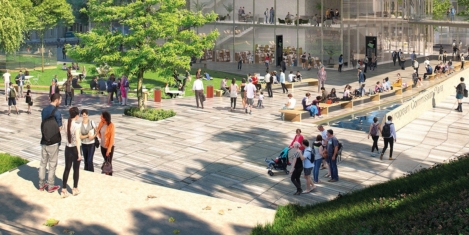To provide the best experiences, we use technologies like cookies to store and/or access device information. Consenting to these technologies will allow us to process data such as browsing behaviour or unique IDs on this site. Not consenting or withdrawing consent, may adversely affect certain features and functions.
The technical storage or access is strictly necessary for the legitimate purpose of enabling the use of a specific service explicitly requested by the subscriber or user, or for the sole purpose of carrying out the transmission of a communication over an electronic communications network.
The technical storage or access is necessary for the legitimate purpose of storing preferences that are not requested by the subscriber or user.
The technical storage or access that is used exclusively for statistical purposes.
The technical storage or access that is used exclusively for anonymous statistical purposes. Without a subpoena, voluntary compliance on the part of your Internet Service Provider, or additional records from a third party, information stored or retrieved for this purpose alone cannot usually be used to identify you.
The technical storage or access is required to create user profiles to send advertising, or to track the user on a website or across several websites for similar marketing purposes.
 One in five dads says their working schedule means they are missing out on seeing their children growing up, claims Quinyx. The research highlights the importance of opening up flexible working to all members of the workforce, including working dads and the impact the rigidness of the current system is having on families. 17 percent of working dads say their work schedule makes them feel like they are missing out on seeing their children grow up. (more…)
One in five dads says their working schedule means they are missing out on seeing their children growing up, claims Quinyx. The research highlights the importance of opening up flexible working to all members of the workforce, including working dads and the impact the rigidness of the current system is having on families. 17 percent of working dads say their work schedule makes them feel like they are missing out on seeing their children grow up. (more…)












 New research from Aon, claims that flexible benefits programmes continue to be popular within organisations, despite communication challenges and a potential impact from 2018’s
New research from Aon, claims that flexible benefits programmes continue to be popular within organisations, despite communication challenges and a potential impact from 2018’s 
 UK SMEs must create a tech-friendly culture to attract and retain top tech talent, according to a new white paper from
UK SMEs must create a tech-friendly culture to attract and retain top tech talent, according to a new white paper from 




















July 23, 2019
Office design should take account of the quality of interactions as well as quantity
by Jonathan Hindle • Comment, Workplace design
(more…)